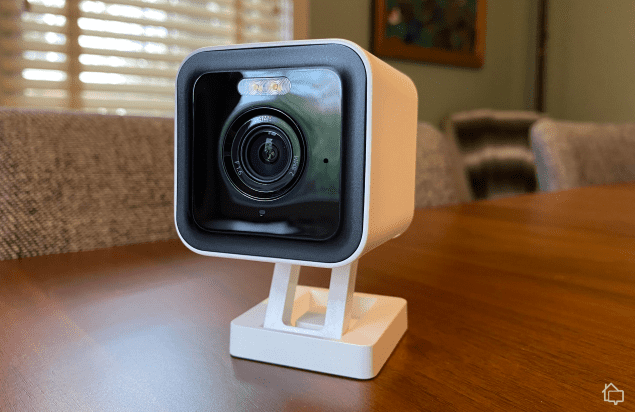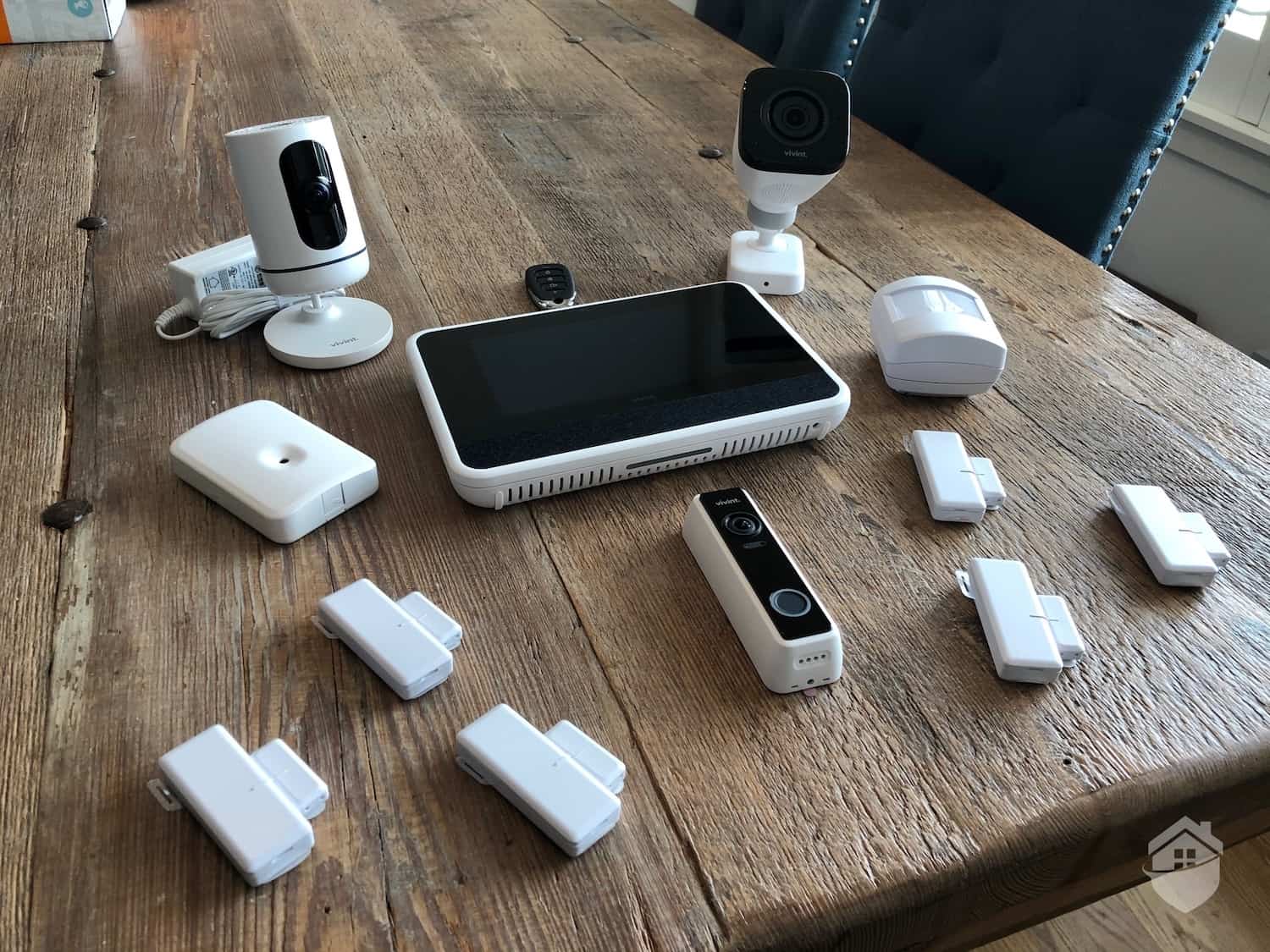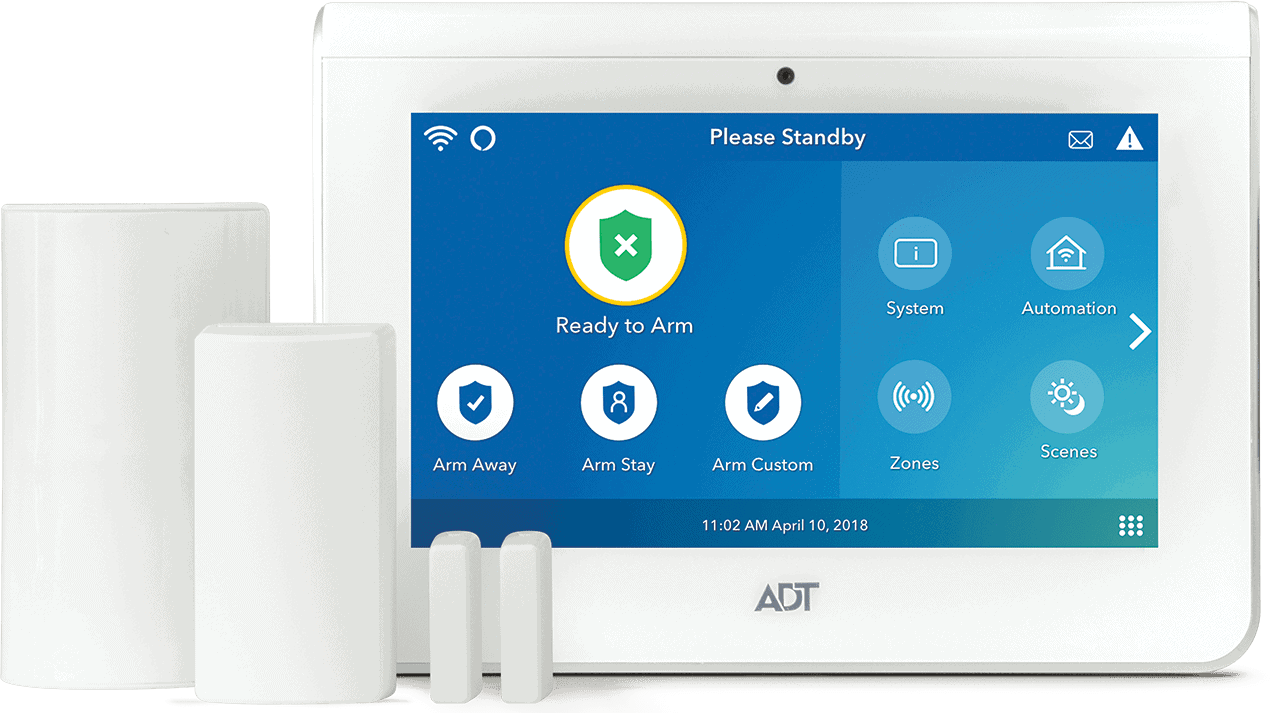Get a self-monitored home security system, they said. You’ll save money, they said. Now you’re leaving a Taylor Swift concert halfway through because your doorbell camera spotted someone lurking on your porch. Without professional monitoring, it’s up to you to figure out whether it’s a neighbor or a burglar.
Don’t cancel your Abode plan just yet, Swifties. I’ve spent countless hours testing self-monitored home security systems. (Don’t believe me? Check out my SimpliSafe review.) The systems have their drawbacks, but they’re also cheap, convenient, and effective.
Do the pros outweigh the cons? You decide. Here’s what you need to think about before you click “add to cart.”
What Is a Self-Monitored Home Security System?
The definition of a self-monitored home security system is in the name. It’s a home security system that you monitor yourself. If someone breaks in, you get the notification. You decide whether to call the police.
What if you’re not paying attention? Well, no one is. This is probably a good time to mention that self-monitored home security systems are also called unmonitored home security systems.

ADT’s indoor video camera features advanced AI detection.
The alternative is a monitored home security system. Think of traditional security providers, such as Brinks and ADT. An ADT plan comes with access to alarm monitors who, well, monitor your alarm. If your motion sensor or entryway sensors go off, they’ll check it out and, if necessary, call the police.
>> Read More: The Difference Between Monitored and Unmonitored Security Systems
Most security companies offer both options. Typically you buy your favorite home security system, and then you either stick with self-monitoring or subscribe to a professional monitoring plan. When you order a Ring Alarm package, for example, you choose whether to add a Ring Protect monitoring plan to go with it.
The Pros of Self-Monitoring
We all know the main disadvantage of self-monitored security systems: You have to monitor them yourself. But what are the advantages?
Affordable
You can think of a home security system like a car. The base model will get you where you need to go. For an extra fee, though, you get extra features.
Professional monitoring is one of those extra features. It can cost a little extra ($9.99 per month for a Wyze plan with text monitoring), a good amount extra ($45 monthly for Frontpoint monitoring), or a whole lot extra ($160 per month for a Deep Sentinel plan with a live guard).

Wyze Cam v3 Pro
Just like you may skip bulletproofing to save money on your new car, you may skip professional monitoring to save money on your new home security system. You can do basic self-monitoring with no subscription at all.
FYI: Did your ears perk up at “no subscription”? Check out our roundup of the best security systems without monthly fees. We tested 37 options so you don’t have to.
No False Alarms
Alarm monitors watch your property for an emergency 24 hours a day, seven days a week. That’s great. Alarm monitors are also often wrong or simply unable to verify a crime in progress. That’s not so great.
Did You Know? If your monitored alarm system is tripped and a monitoring agent unsuccessfully tries to contact you, their next step is to call the police and send them to your home. Experts estimate that up to 99 percent of police calls from security services are the result of false alarms.1
Understandably, local police aren’t thrilled about that. That’s one reason many departments require verified alarms — such as video or witness verification that there is an emergency — before responding.
Verified response cities:
- Detroit
- Eugene, Oregon
- Las Vegas
- Modesto, California
- Salt Lake City
- Yakima, Washington
Avoid false alarms with a self-monitored system. If you knock your motion sensor off the wall, you’ll know it. When your alarm goes off, you won’t call 911 — you’ll disarm the system, stick the sensor back on, and go on with your life.
No Permit Necessary
Many local governments require monitored system owners to get a permit (see: false alarms). Avoid the paperwork — and the registration fee — by choosing a self-monitored system instead.
Monitored Security System Permit Costs
| Registration | Annual renewal | |
|---|---|---|
| Ann Arbor, Michigan | $37 | $37 |
| Los Angeles | $43 | $26 |
| Oklahoma City | $27 | $17 |
| Dallas | $50 | $50 |
Private
Our AI overlords haven’t completely taken over yet. Professional monitoring is still handled by humans, which means an actual human being is accessing your data in an emergency.
There are usually strict rules about when and how they can access it. Deep Sentinel allows you to block video viewing with Privacy Mode. According to the company, its trained guards couldn’t view the footage even if they wanted to.2 (Pssst: Check out our Deep Sentinel review for details.)
I wouldn’t blame you for not trusting a big tech company to respect your privacy. Just this year, Amazon had to pay $30 million in fines for privacy violations.3 One Ring employee accessed dozens of private camera feeds.
You may want to avoid one more company accessing your data by saying no to monitoring.
FYI: You have more than creepy employees to worry about. If you don’t take precautions, hackers can access your private footage. Learn how to protect your home security cameras from hacking.
The Cons of Self-Monitoring
Get out your glass. It’s time to drink some hater-ade. We’re going to go over all the reasons you may not want a self-monitored system.
Stressful
Alarm monitoring is a job. If you’re not paying for professional monitoring, guess what? It’s your job.
You have to watch for alarm notifications. You have to figure out whether they’re a legitimate threat. You have to call the police in the event of an emergency.
Maybe $20 per month is a small price to pay for someone else to deal with the stress.
Monitoring Gaps
There’s another problem with monitoring your home security system yourself: When you’re asleep, so is your alarm monitor (you!). And sleep isn’t the only time you won’t be paying attention to your security app notifications.
Here’s a short list of scenarios when you may not hear the alarm bells:
- On vacation
- In a movie theater
- At a concert
- At the gym
- At work
- At a restaurant
That’s a lot of time to leave your home unprotected.
No Perks Included
Professional monitoring is rarely sold on its own. It’s usually part of a subscription fee that covers multiple perks. Let’s look at a SimpliSafe plan, for example. The $30 monthly subscription includes:
- Cellular backup
- Scheduled arming and disarming
- Unlimited camera recording
- Lifetime device warranty
You may not want to spend $30 per month on monitoring, but what about monitoring plus all those extras?
Pro Tip:Is your security system on when the Wi-Fi goes out? Probably not, unless you have cellular backup. The feature is a must if you deal with frequent power outages.
How to Make the Most of a Self-Monitored Home Security System
If you have a self-monitored home security system, you may be feeling pretty nervous about that long list of cons. Here’s the thing: You can address most of them.
Get a Basic Subscription
Maybe you don’t want professional monitoring, but you want other extras. Look into your favorite security provider’s basic subscription. The $5.99 Ooma plan includes every single feature except professional monitoring.
Share the Responsibility
You can’t stay awake 100 percent of the time, but what about your night-owl neighbor?
Most security companies allow you to add multiple users to your home security system. If you don’t see a notification, they might. Just make sure you pick someone you trust.
Adjust Your Settings
If you want to make the most of your self-monitored home security system, say goodbye to Do Not Disturb mode — or at least set your home security app notifications to come through no matter what. That way, you’ll get an alert in an emergency, night or day.
Should You Get a Self-Monitored Home Security System?
Still not sure whether a self-monitored plan is right for you? Here are a few signs it could be a good choice.
You’re On a Budget
When every penny counts, even a $17.99 Cove plan is too much. Skip the fees and monitor your security system yourself.
You Want to Take Control of Your Security
Maybe paying attention to your alarm system doesn’t feel like a chore. Maybe it feels empowering. Interesting. Dare I say fun? (No judgment. I’m a security writer, after all. I get it!) In that case, keep your phone on and your eye out for alerts.
You’re a Homebody
Are you a stay-at-home parent who hasn’t had a vacation in who knows how long? First, you’re doing great. Second, you may want to consider a self-monitored system. If you’re not leaving the house, you’re more likely to catch the alarm going off.
The Takeaway
Choose a home security system that works for you. Not your friend, not your coworker, not some random guy on the internet. You.
Are you a work-from-home tech geek who doesn’t want anyone else to see your home security footage — ever? Take a look at our list of the best unmonitored systems. Are you a world-traveling worry-wort who never pays attention to cell phone notifications? Check out our favorite monitored systems instead.
Either way, you’re keeping you and your home safe.
>> Read More: Our 2024 Guide to Securing Your Home





